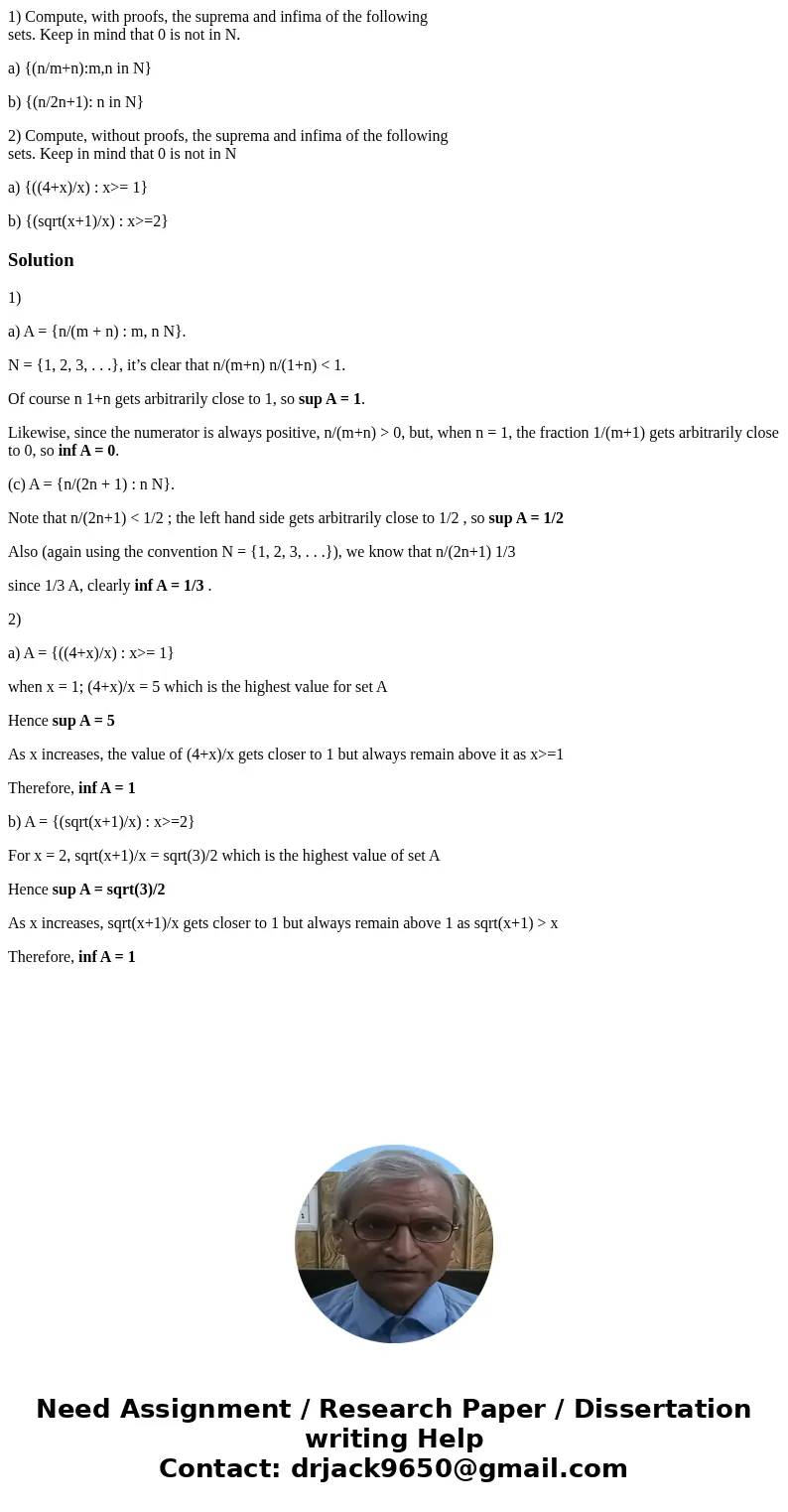1 Compute with proofs the suprema and infima of the followin
1) Compute, with proofs, the suprema and infima of the following
sets. Keep in mind that 0 is not in N.
a) {(n/m+n):m,n in N}
b) {(n/2n+1): n in N}
2) Compute, without proofs, the suprema and infima of the following
sets. Keep in mind that 0 is not in N
a) {((4+x)/x) : x>= 1}
b) {(sqrt(x+1)/x) : x>=2}
Solution
1)
a) A = {n/(m + n) : m, n N}.
N = {1, 2, 3, . . .}, it’s clear that n/(m+n) n/(1+n) < 1.
Of course n 1+n gets arbitrarily close to 1, so sup A = 1.
Likewise, since the numerator is always positive, n/(m+n) > 0, but, when n = 1, the fraction 1/(m+1) gets arbitrarily close to 0, so inf A = 0.
(c) A = {n/(2n + 1) : n N}.
Note that n/(2n+1) < 1/2 ; the left hand side gets arbitrarily close to 1/2 , so sup A = 1/2
Also (again using the convention N = {1, 2, 3, . . .}), we know that n/(2n+1) 1/3
since 1/3 A, clearly inf A = 1/3 .
2)
a) A = {((4+x)/x) : x>= 1}
when x = 1; (4+x)/x = 5 which is the highest value for set A
Hence sup A = 5
As x increases, the value of (4+x)/x gets closer to 1 but always remain above it as x>=1
Therefore, inf A = 1
b) A = {(sqrt(x+1)/x) : x>=2}
For x = 2, sqrt(x+1)/x = sqrt(3)/2 which is the highest value of set A
Hence sup A = sqrt(3)/2
As x increases, sqrt(x+1)/x gets closer to 1 but always remain above 1 as sqrt(x+1) > x
Therefore, inf A = 1

 Homework Sourse
Homework Sourse